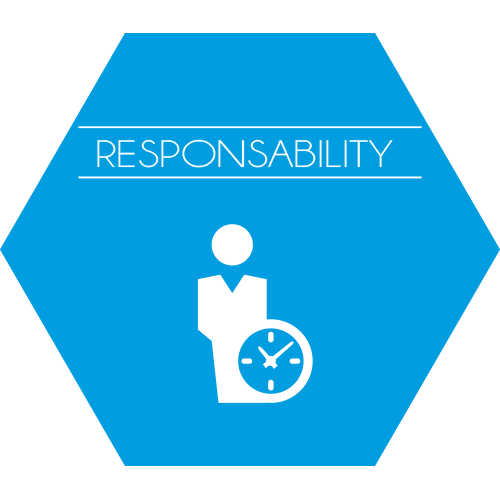Renal disease reports a prevalence of 12.2% with an estimate of 51.4 deaths per 100,000 inhabitants in Mexico: INSP.
IMSS treats about 70% of patients in the country; 41.7% receive hemodialysis (HD) and 58.3% peritoneal dialysis (DP).
The timely diagnosis of Chronic Renal Disease (CKD) and adherence to treatment can reduce the impact on health and help patients in quality of life, however, it is important to implement a comprehensive care model that includes nutrition and psychological support.
In this context, the Medical Manager of Nephrology at PiSA Group, Dr. Gabriela Abundis Mora, affirmed that CKD is a disorder of multifactorial origin, strongly associated with non-communicable chronic diseases (NCDs) of greater prevalence in our population such as: Diabetes Mellitus (DM), Hypertension (HTN), overweight and obesity
“Kidney disease is the loss of kidney function, which filters out waste and excess fluids in the body. When the kidneys fail, waste accumulates. Symptoms appear gradually and are not disease-specific, even some people do not have symptoms and are diagnosed late, “said Abundis Mora, a doctor who specializes in nephrology.
According to data from the National Institute of Public Health (INSP), in 2017 the ERC reported a prevalence of 12.2% with an estimate of 51.4 deaths per 100,000 inhabitants in Mexico. In the document “Chronic Renal Disease in Mexico”, published in August 2020, the INSP considered that this pathology is one of the main public health problems, since there are about 6.2 million Mexicans with diabetes who have kidney damage in their different stages, some of these without a specific diagnosis.
Renal replacement therapies
Worldwide, to attend CKD, there are two types of Renal Replacement Therapies (RRT), also known as renal function replacement treatments, as well as Renal Transplantation (RT) from living or cadaveric donor. According to data from the Mexican Social Security Institute (IMSS), which treats about 70% of patients in the country. In Mexico there are more than 60,000 patients with CKD who receive these therapies; of these, 41.7% receive hemodialysis therapy (HD) and 58.3% receive peritoneal dialysis (DP).
The Medical Director of PiSA Group Services, Dr. Karina Renoirte López, explained that the Company has the infrastructure and technology to offer both treatments, in addition to production capacities for the medicines and supplies that are needed in this type of life support therapies.
“The company has developed a comprehensive care model that guarantees quality and safety for patients through Comprehensive Nephrology Services (SANEFRO) which, currently, has a total of 14 specialized clinics located in the Mexican Republic to offer hemodialysis, of which 11 units are certified by the General Health Council (GSC) for a period of 3 years and an extension of 2 additional years for good practices; 2 are in the process of certification and one more is intramural, therefore the certification is carried out by the hospital, “said Renoirte López, a specialist in nephrology at the University of Guadalajara (UdeG)
The former president of the Association of Nephrologists of Mexico, Karina Renoirte, said that SANEFRO has the support of a multidisciplinary team composed of 42 general doctors, 31 nephrologists and nursing staff, composed of a total of 335 professionals specialized in nephrology who are trained under a model developed in the Company.
For her part, Dr. Gabriela Abundis Mora said that PiSA Farmacéutica was the first Mexican company to compete and enter the market with the replacement treatment of peritoneal dialysis (DP) in its two modalities: Continuous Ambulatory Peritoneal Dialysis (DPCA) and Automated Peritoneal Dialysis (DPA), the latter with the endorsement of the National Center of Technological Excellence in Health (CENETEC).
PE is a very simple technique that is performed daily in the patient’s home, to remove waste, chemicals and additional fluid from the body, in the case of the DPCA, the patient does it manually and in the DPA with a cycling machine, However, in both cases it is very important that the patient is trained in the correct connection and disconnection technique to reduce the risk of infection.
“While patients receive a kidney transplant, dialysis or hemodialysis are life-support treatments, however, not all people are suitable candidates for receiving a kidney. It is also important to perform an analysis of renal replacement therapies, consider the risks and the clinical situation of each patient, so that there is adequate control and adherence to treatment, “shared Abundis Mora, a nephrologist attached to the Civil Hospitals of Guadalajara (HCG).
The DPA allows people living with kidney failure to continue performing some activities since the Pharmaceutical PiSA cycling machine can be connected during the night, but we must remember that the advice and assessment of health professionals must be a fundamental part and promote self-care.
Finally, the Medical Director of PiSA Group Services, Dr. Karina Renoirte López, emphasized that before receiving this type of treatment, it is important that patients and their families verify that the hemodialysis clinics have a health license and compliance with the NOM-003-SSA3-2010 for the practice of hemodialysis and correlated Standards: 004 of Clinical Record, 017 related to Epidemiological Surveillance and 016 on Essential Infrastructure.






